Five Top Brands with Negative Keyword Blunders
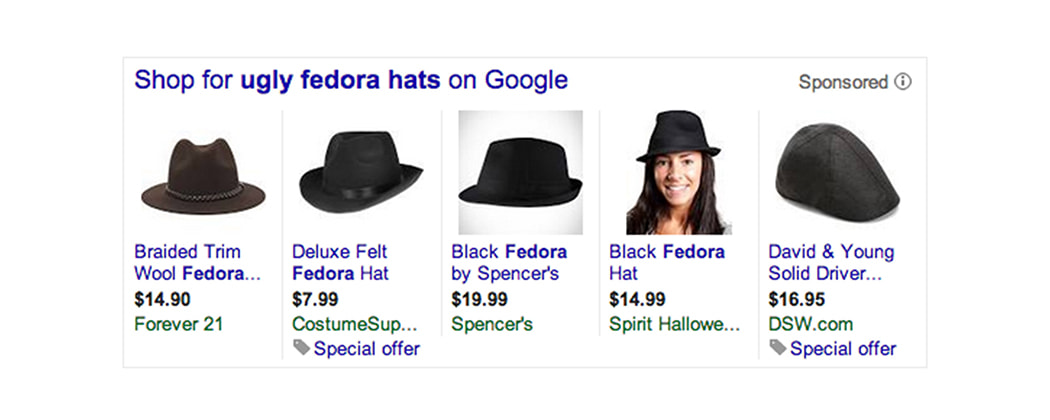
In the world of online shopping, it’s surprisingly easy for someone searching for one product to be shown an ad for another. But these snafus waste valuable ad spend and for small e-retailers, that’s not an option.
By using negative keywords, an ecommerce marketer can narrow down the searches an ad appears on. To prevent an ad for your fruit delivery service to show up on a search for “plastic fruit,” you would use “plastic” as a negative keyword. This way, you’re not paying to show your ad to shoppers that are not looking for your product or even those who aren’t ready to buy.
Still, sometimes finding and choosing those keywords can be difficult. There are constantly new types of products and unheard of niche categories on the market. (See: cat scarves.) Facing a constant stream of change, every brand slips up once in a while. Even the big guys are fallible, and when mistakes are made small businesses have an opportunity to make serious headway in ad position and rank.
Here are five cases where top retailers have overlooked a type of negative keywords and phrases to ensure you don’t make the same mistake:
1. Staples
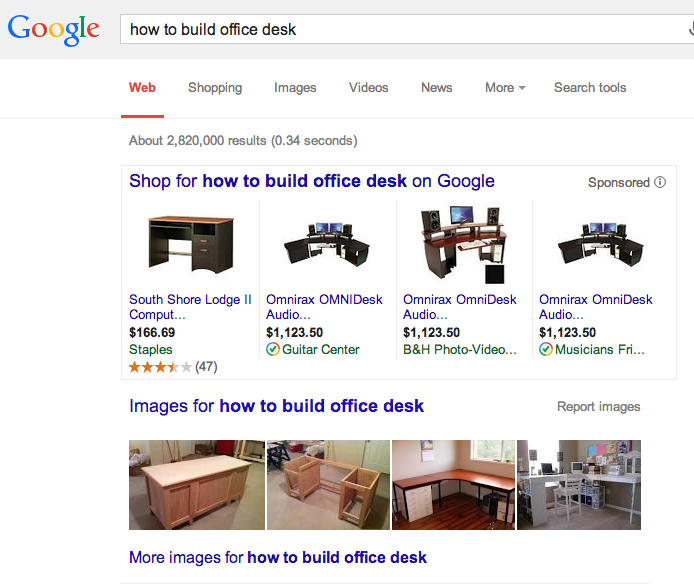
If you’re selling furniture, jewelry, clothes, or any product that could potentially have DIY instructions online, be mindful of related informational searches. “Build your own,” “How to,” or “DIY instructions” all signal that consumers are learning about a product and aren’t ready to (or even planning to) buy. It’s easier to catch desk shoppers in later searches like “customizable office desk” or “pre-assembled office desk” when they’ve hit their thumbs with a hammer one too many times.
Negative keyword type: Informational
More examples: learn more, history of, what is, how long, at home, instructables, hack, steps, step by step, homemade, handmade, directions, guide, FAQ, blog, plans, tips, advice, information, resources, troubleshoot, tutorial, questions, article
2. Walmart
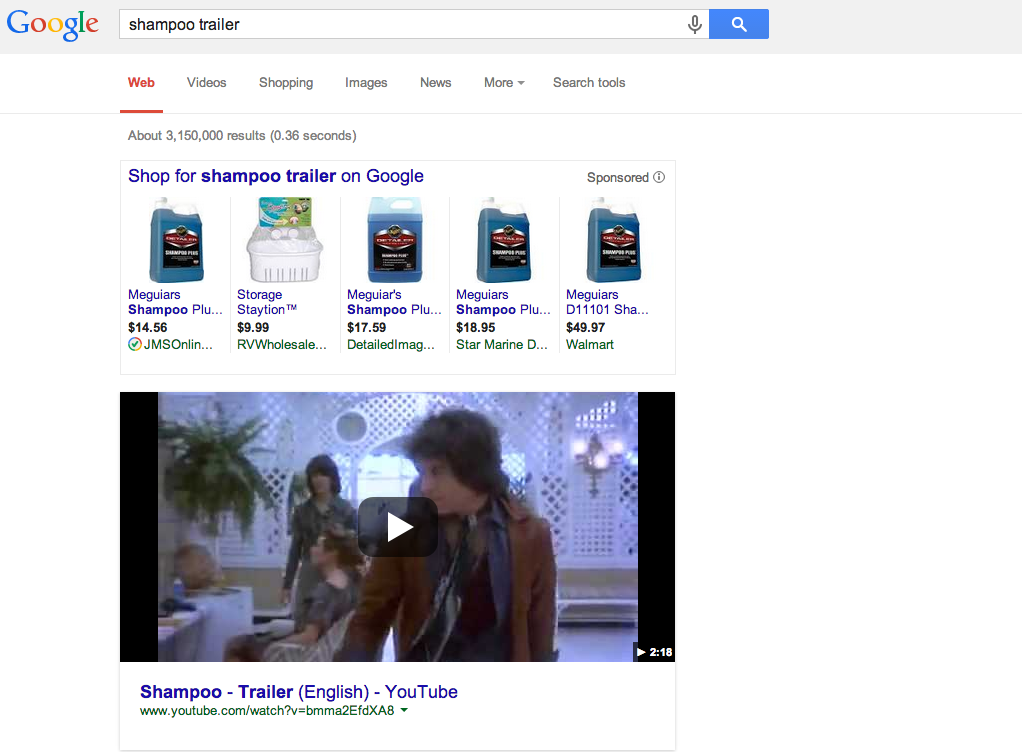
You might be tempted to give Walmart a pass on this one, as the products it carries are so wide spread and diverse that it can be difficult to find every negative keyword. But the software that detects keywords and click through rates would identify this as a sore thumb in a batch of searches, making this a very careless mistake, even for a super-sized retailer. Forgetting keywords on media searches for music, movies, books, or games wastes ad spend on customers who clearly aren’t looking for cleaning products.
Negative keyword type: Media
More examples: scenes, cast, lyrics, album, showtimes, author, release date, script, pdf, download, theater, tickets, DVD, mp3, review, opinion, itunes, stubhub, ticketfly, spotify, record, run time, kindle, ebook, rental
3. Lasik plus
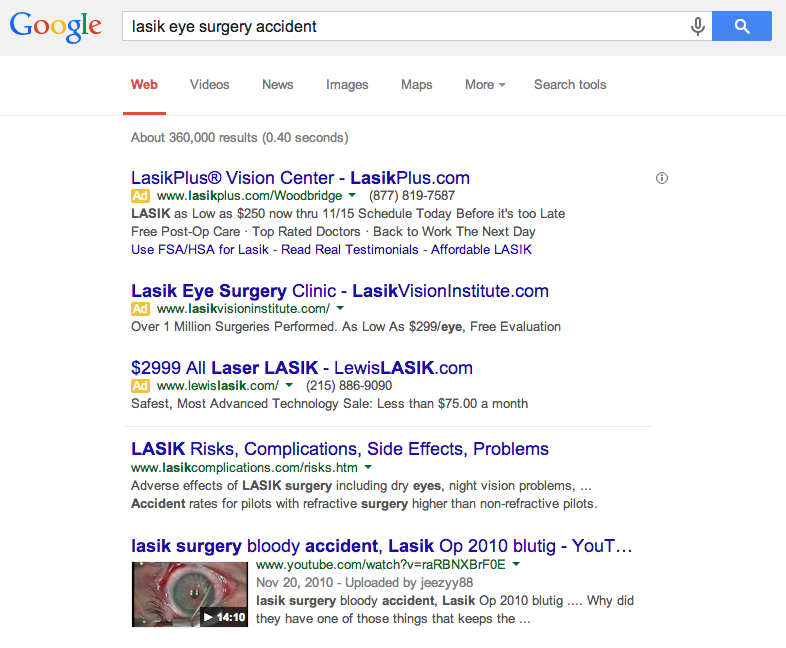
The last thing you want is to have your brand and services associated with a painful accident. When exploring the possibility of Lasik eye surgery, your customer will probably want to check out the potential risks or read third-party reviews. These are not the customers who are sold on the procedure; they are still exploring. So not only are you paying for your ad to be shown on a non-converting search, you are associating your brand with negativity in the consumer’s mind.
Control these searches by creating a landing page explaining the hazards and title the ad something along the lines of “Worried about the risks? Learn more about LASIK surgery.” This will answer customer questions without making your brand look oblivious.
Negative keyword type: Negative
More examples: worst, bad, accident, pain, scary, disaster, explosion, horror story, fail, dangers, risks, crash, recall, fall, damage, lawyer, scam, investigation, lies, scandal, news
4. Crate & Barrel
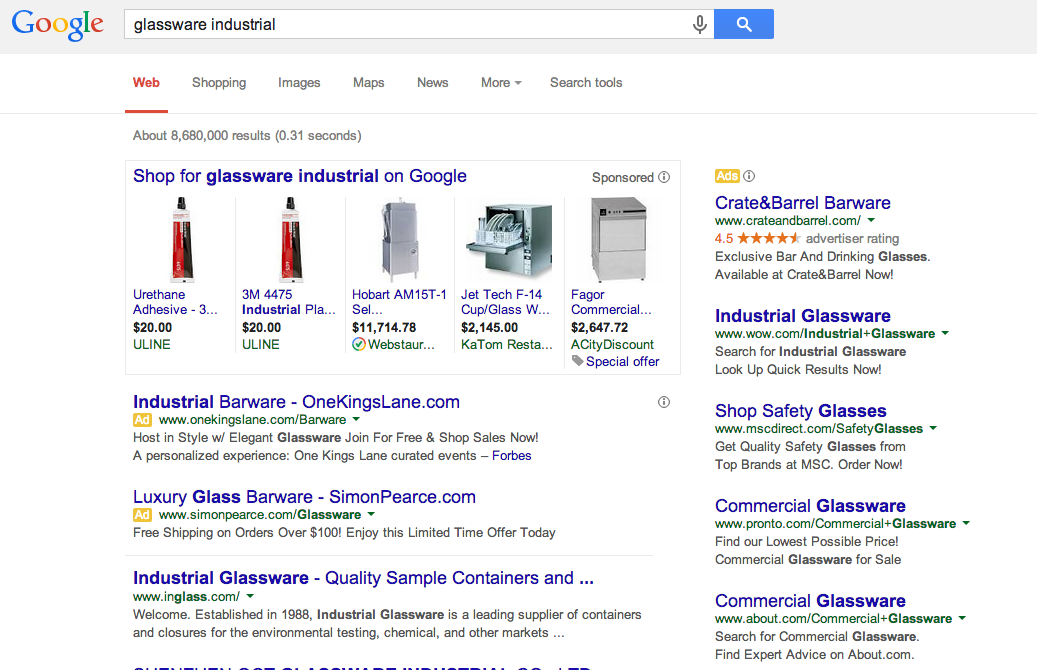
Here’s an example of a purchase-ready search, only it’s for a type of product the retailer in question isn’t selling. Crate & Barrel should know better than to let a barware campaign show up on a search for industrial products. They cannot fulfill these needs and are essentially forming useless impressions. Check if your product is available in different materials, or in different niche categories. This goes back to the real vs. plastic fruit debate.
Negative Keyword Type: Product type
More examples: hobby, export, consumer, antique, rules, specifications, repair, rental, toy, game, wood, plastic, metal, photo, vintage, used, refurbished, second hand, code, collectible, bulletin, data, maps, loans, logo, test
5. Post-it
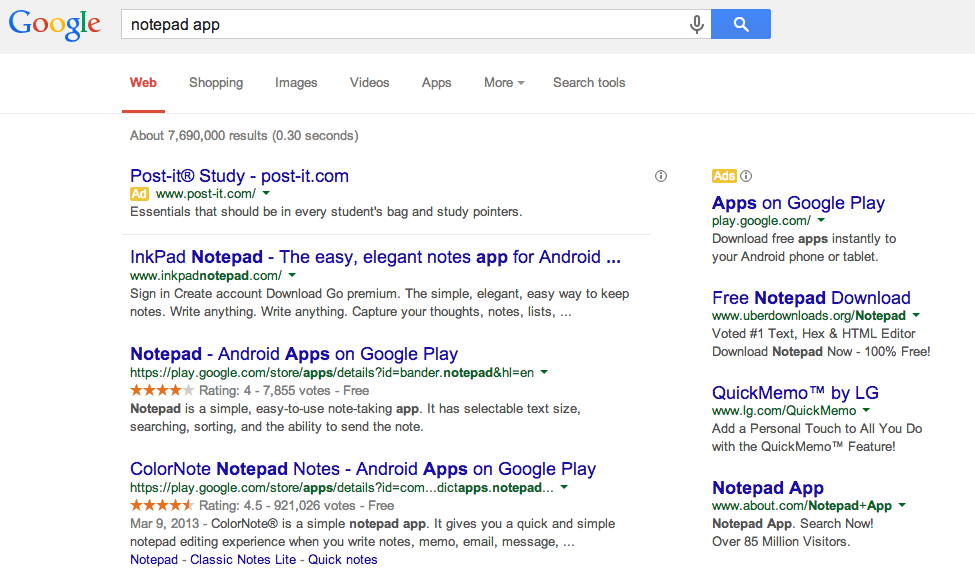
Although it’s appropriate that Post-It is targeting notepads, they’re overlooking a now-common word that disqualifies it from the search. Unfortunately, this result makes Post-It seem a little out-of-touch with modern searches instead of promoting them as a classic brand. New technologies are the most difficult to find and account for with negative keywords, but do your research and be sure there’s not an app for that.
Negative Keyword Type: Digital
More examples: download, online, stream, for iPhone, torrent, forum, clip, software, data, definition, ebook, program, sample, pdf, jpeg, doc, application, update, wiki, wikipedia, white paper, report, video
Even though it’s easy to overlook a keyword here or there, the number of mis-fires eventually adds up, killing the ROI of your ad spend. And while large online retailers might not lose sleep over a couple of wasted impressions, small retailers must be incredibly savvy when it comes to negative keyword selection.
WANT MORE Adwords INSIGHTS? DOWNLOAD OUR FREE WHITE PAPER: ADWORDS DEFAULTS DRAINING YOUR ROI
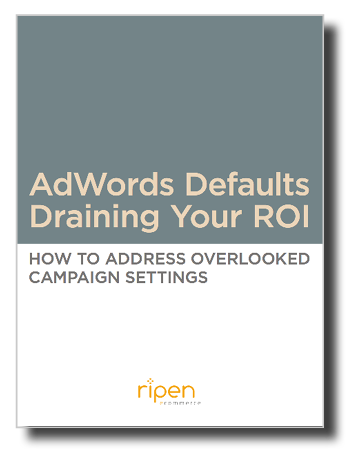
Let’s get started.
Find out how we can help your ecommerce strategy.
Get in touch
If you’re a rockstar with big ideas, join our team.




